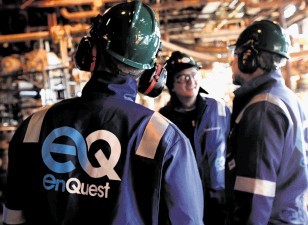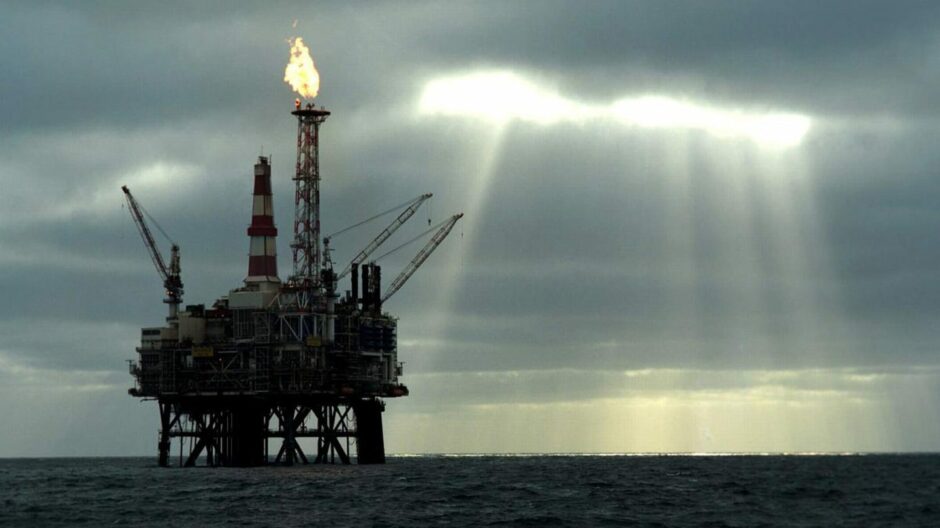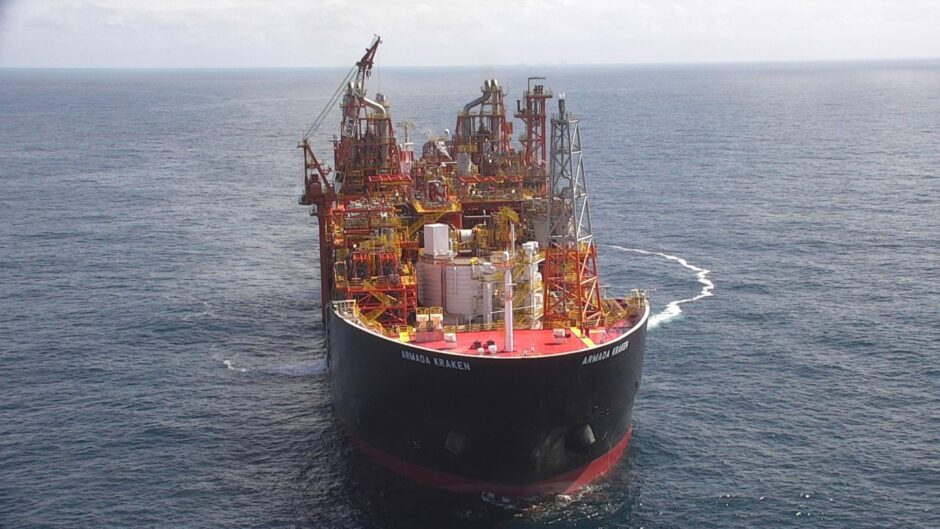
North Sea operator EnQuest (LON: ENQ) is the latest company to reap the rewards of “strong production” and “high commodity prices”.
For the first six months of 2022, the London-listed firm raked in pre-tax profits of $416 million (£359m), more than double last year’s equivalent figure of $175m (£150m).
Revenue for the period also shot up, from $518m (£447m) in H1 2021, to $943m (£813m) in H1 this year.
Group net production averaged 49,726 barrels of oil equivalent per day (boepd), up from 46,187 boepd in 2021.
The company’s net debt at the end of June was reduced by $342m (£295m) from year end, reflecting strong free cash flow.
Ashley Kelty, an analyst at investment bank Panmure Gordon,said: “Refinancing in the period saw debt drop through accelerated repayment of reserved base lending (RBL) and tenor extension for bonds.
“A strong performance from ENQ and investors will be delighted at pace of debt reduction.”
Windfall tax
EnQuest also revealed that following the introduction of the energy profits levy, or windfall tax, it the UK, it expects to pay cash tax in for the duration of the policy period.
The levy will wrap up when oil hits $70 a barrel or at the end of 2025, whichever comes first.
EnQuest expects to make its first payment on account under the windfall tax in December.
Mr Kelty added: “While the imposition of the UK Energy Profits Levy is a blow and will see ENQ being a cash tax payer in 2H22, the higher production and crude prices still mean an improved outlook.”
EnQuest has also stressed its commitment to investment in the UK, and is reviewing future capital expenditure programmes in light of the tax relief included as part of the levy.
Under the terms of the policy, North Sea operators can claim back around 90p in relief for every pound spent on new projects.
Group chief executive, Amjad Bseisu said: “Strong production, together with high commodity prices saw the Group generate free cash flow totalling $332 million in the first half of 2022, driving a significant reduction in net debt to $880 million. Consequently, our net debt to 12-month EBITDA ratio has reduced to 0.9x, demonstrating excellent progress towards our 0.5x target.
“We have a significant work programme to deliver in the second half of the year but remain on track to deliver our operational targets in our core business.”
Magnus
In the UK, EnQuest revealed average production for the first six months of 2022 from Magnus was 12,754 boepd, 7.9% lower than the first half of 2021.
Production was impacted by a seawater lift pump failure and a well integrity failure in June – the problem was resolved the following month.
A well intervention programme at Magnus is also ongoing, and the North West Magnus production well, the longest reservoir section drilled this century, was completed and logged in late July.
It is expected online around the end of the month.
Bressay and Bentley
EnQuest is also working with its partners to progress two North Sea prospects.
Field development studies for Bressay, which the company acquired a 40.81% operating stake in from Equinor last year, are ongoing.
And the team working on Bentley, around 85 miles south-east of Shetland, is “focused on re-evaluation of the existing subsurface data”.
Both prospects are situated close to EnQuest’s Kraken FPSO, a potential tie-back host for Bressay, which will be developed first.
The two fields added almost 250 million barrels of oil equivalent of 2C resources to its reserves, the company confirmed earlier this year.
Mr Bseisu said: “We are committed to supporting the UK’s twin objectives of delivering energy security and decarbonisation. Through our Infrastructure and New Energy business, we intend to repurpose and utilise existing assets to progress new energy and decarbonisation opportunities, including carbon capture and storage, electrification, and the production of green hydrogen.
“We remain focused on further strengthening our balance sheet, which will position us well to utilise our capability to unlock organic and inorganic growth opportunities, including the capital-light infrastructure and new energy business, and deliver returns to shareholders in the future.”
Recommended for you


 © EnQuest
© EnQuest © Supplied by EnQuest
© Supplied by EnQuest © Supplied by EnQuest
© Supplied by EnQuest